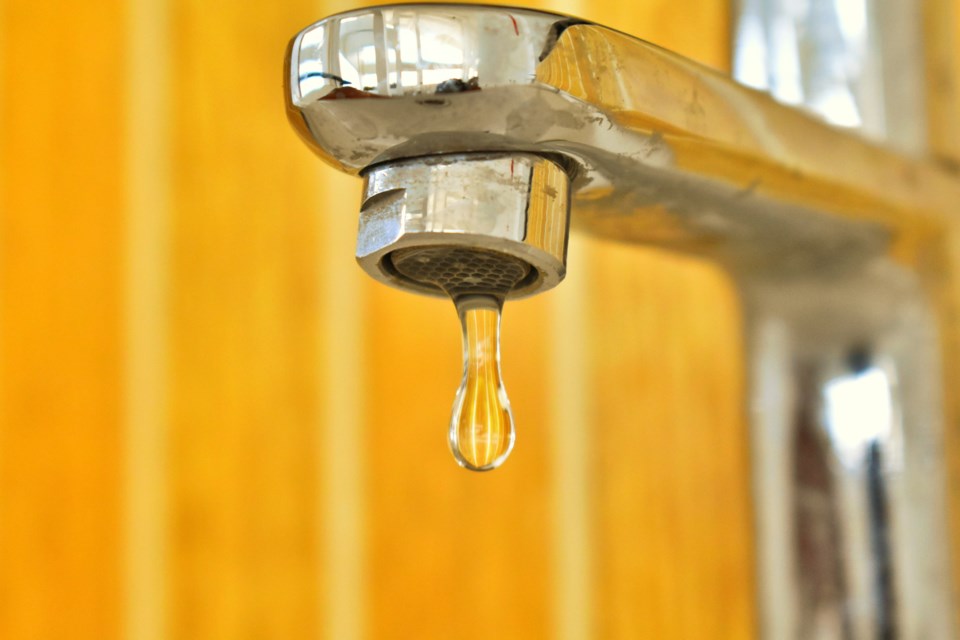A plan to improve water service in Indigenous communities has dried up, for the time being.
City council deleted a motion from its agenda Monday to dedicate 0.2 per cent of its 2022 water and wastewater revenue -- about $100,000 or $1.77 per Barrie household -- toward these improvements.
Council is inviting Water First, a Creemore-based non-government organization, to make a presentation to the city’s finance and corporate services committee on its program to train young Indigenous people from reserves to become certified in operating a water plant through a 15-month paid apprenticeship. This is where the $100,000 could have been spent.
“I don’t want to bamboozle the intention of it,” said Coun. Ann-Marie Kungl of the plan, “but I am struggling with the direction of the money to out of region (not in Barrie) and being able to answer that question without also knowing, how do our local Indigenous representatives feel about this? Is this something they would endorse or would they say, you know what, it would have been great if you had re-directed that money into something locally.”
“I would prefer actually that we have some contact with our local Indigenous community, so that they can give some thought to what we might spend this money on and how it would be spent,” said Coun. Clare Riepma.
“It would be nice to hear exactly where this money would be going and it will also provide some time for input…from some of our local First Nations representatives, to see if they are aligned with this direction also, before we make a final decision, from a financial perspective,” said Coun. Gary Harvey of the finance committee referral.
But Deputy Mayor Barry Ward, who proposed the original motion, said there is strength in the simplicity of his plan.
“I’ve talked to other councillors. They want to do other things and consult,” he said. “This is really clean and, pardon the pun, we don’t want to muddy the waters by doing a bunch of other things. We don’t want to take control of how that money is spent. We want to find someone running a program we believe in and give them the money.
“I don’t want it to get complicated, I don’t want to start consulting with people and having staff go out and find other projects,” Ward said. “Let’s just keep it really simple. If any other councillor wants to bring forward a motion to say here’s something else we can do for reconciliation, I’ll be all ears.
“This is just one proposal that’s really clean and simple. And it’s got the potential to make a big difference. Let’s not complicate it by trying to think of other things we can do.”
But council deleted the money part of his motion and sent the Water First presentation to finance committee, which next meets Sept. 14.
Ward said the funding portion of the motion could be re-introduced at finance committee and come back to council at a later date.
“I can live with this amendment,” he said. “I’d prefer to establish the amount first.”
Ward said about 40 per cent of Ontario’s Indigenous reserves are currently operating under a boil water advisory. The city brings in just more than $60 million each year in water and sewer charges, he said, which includes users fees, service charges and rentals - and 0.2 per cent of the revenue equals about $100,000.
The average annual water/wastewater bill in Barrie is approximately $884 annually, meaning Ward’s plan would cost about $1.77 per household.
At budget time, council could decide whether it wants to add it to the bills through a slight increase in rates or just absorb it into the city’s costs for one year only - so future councils could decide to continue the contribution or not.
While the federal government pays for water infrastructure on First Nations, it doesn’t pay to train operators of the systems.
Ward said most Water First graduates return to their communities to work in the water system. The graduates get employment, the community gets a better water system and doesn’t have to depend on people coming in from outside to maintain it.
In places such as Walkerton and North Battleford, where failures in the water system resulted in the illness of thousands of people and the death of some of them, the problem wasn’t that they didn’t have a water system. The problem was it wasn’t maintained properly.
The Truth and Reconciliation Commission didn’t specifically call for municipalities to fund water systems on reserves, Ward said, but it did talk about the need for all levels of government, including municipalities and First Nations, to work together in the spirit of reconciliation.
Earlier this month, a proposed settlement agreement worth nearly $8 billion was reached in two national class action lawsuits launched against the federal government by First Nations living under drinking water advisories. Awaiting court approval, the settlement would offer $1.5 billion in compensation to individuals deprived of clean drinking water and modernize Canada's First Nations drinking water legislation.



